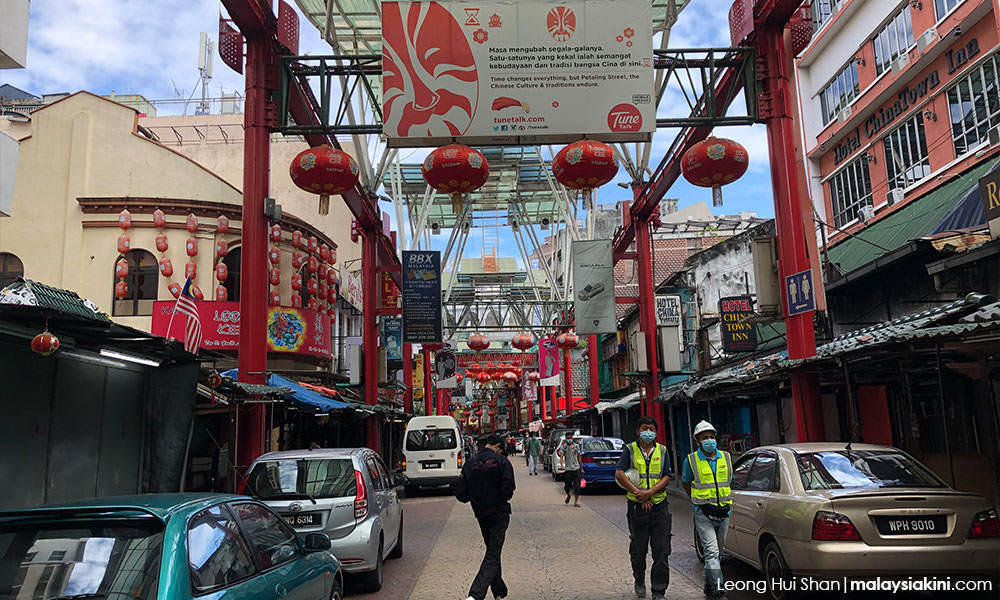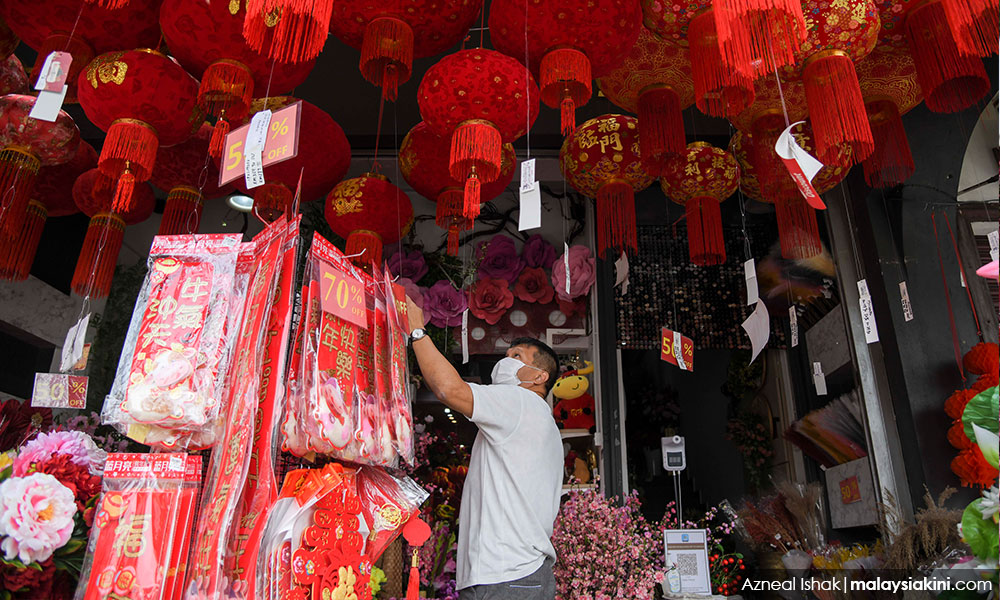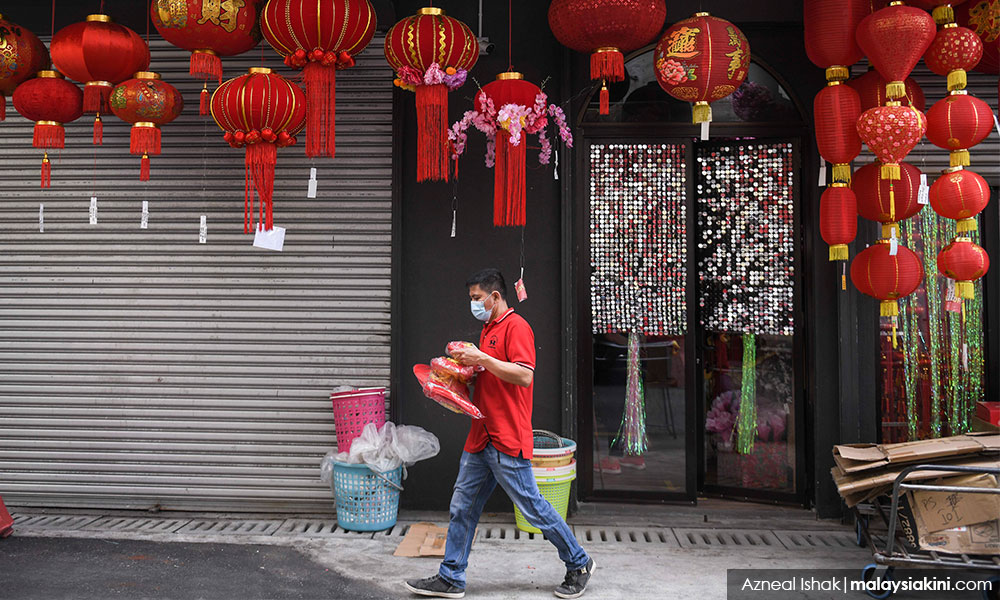Chinese New Year (CNY) is around the corner, but the atmosphere is anything but festive. The Covid-19 pandemic is surging and the movement control order (MCO), which ends on Feb 4, might be extended.
Traders, who witnessed brisk sales of seasonal products such as rice cakes, tangerines and decorations in the past, are hard-pressed to make a profit.
The main market for CNY products in Kuala Lumpur, Petaling Street, has been reeling without business. In the past, it would have been nothing short of a herculean task to navigate through the crowds of shoppers during this period.
Although decorations have been put up and CNY songs echo through the streets, Kuala Lumpur Hawkers and Petty Traders Association chairperson Ang Say Tee said that since 90 percent of the stalls are unable to operate due to the MCO, there has been a sharp decline in customers.
'If this continues, traders may not die of illness, but will starve to death," he told Malaysiakini.
Last year, CNY was celebrated before the first MCO and therefore, it did not have a huge impact on the traders.
This time around, traders had ordered the goods before the government announced the second MCO due to the sharp increase in Covid-19 cases.
"The problem now is that the CNY goods cannot be sold at all.
'We have reduced buying stock in half, hoping to make just a bit of profit. But now there are no customers at all," he lamented, adding that the seasonal products cannot be sold at a later date.

'No income, no food'
Furthermore, he added that fragile goods such as CNY biscuits and cakes are not suitable to be mailed to customers.
"The only way for the government to help us is to cancel the MCO and relax the rule on prohibiting economic activities.
"It does not matter if we can celebrate CNY or not; selling our existing stock is the most important task now. No income, no food," he added.
Ang stressed that since the Covid-19 outbreak in Malaysia, Petaling Street traders had taken adequate preventive measures, including disinfection and checking customers' temperature.
He pointed out that there has been no outbreak in this area so far.
To alleviate the financial burden of traders, Ang and his association have asked the Kuala Lumpur City Hall (DBKL) to provide a three-month exemption for rental and license fee.
He also hopes that Federal Territories Minister Annuar Musa would be able to distribute aid to the traders similar to the first MCO.

Fruit sales affected as well
Similarly, Kuala Lumpur Fruits Wholesalers' Association president Chin Nyuk Moy said her members are in a similar predicament.
Pointing out that fruit sales have been affected nationwide, she said night market traders are the worst hit since MCO prevents people from travelling more than 10km.
For this year, Chin said sales have reduced by at least 50 percent, leading wholesalers to adjust their import quantity based on budget and customer needs to avoid losses.
In addition to imported fruits, the sales of local fruits have been hampered as well.
'The market for Ipoh grapefruit is affected. Since there are no tourists in Ipoh, sellers are asking us (wholesalers) for help to sell them. But what can we do? The economy is getting worse, and grapefruits cannot be refrigerated for too long," she added.
On the flip side, the pandemic has increased sales for grocery stores.
Federation of Sundry Goods Merchants Associations of Malaysia president Hong Chee Meng said this is because customers are now frequenting the nearby stores in their locality.
Despite this, grocery stores have reduced their stock for CNY, anticipating a drop in sales.
"It may not be until the last week that everyone will start purchasing. We have no idea. As far as I can see, this year is not so optimistic since people can't travel to other states.
'If the government announces an extension of the MCO, the market will be bad... As for sales, I believe it will decrease by at least 30-40 percent," he added.

Due to the current situation, the Selangor state government will launch the Selangor E-Bazar Chinese New Year Campaign with the hope of easing the burden of the merchants.
According to Selangor exco for industry and trade Teng Chang Khim, the state government will channel RM2 million in the form of discount vouchers to two of the most popular online sales platforms in Malaysia – Shopee and Lazada – for the campaign.
The main objective is to assist SMEs and micro-businesses in Selangor to embrace digitalisation to survive in the challenging business environment caused by the Covid-19 pandemic and also to provide a safe environment for the people to shop online with more choices of products with discount prices.
According to the press release, the E-Bazaar campaign will be held from Feb 1 until March 7, targeting the participation of 25,000 SMEs as well as micro-businesses, including 12,500 new e-merchants. - Mkini



No comments:
Post a Comment
Note: Only a member of this blog may post a comment.